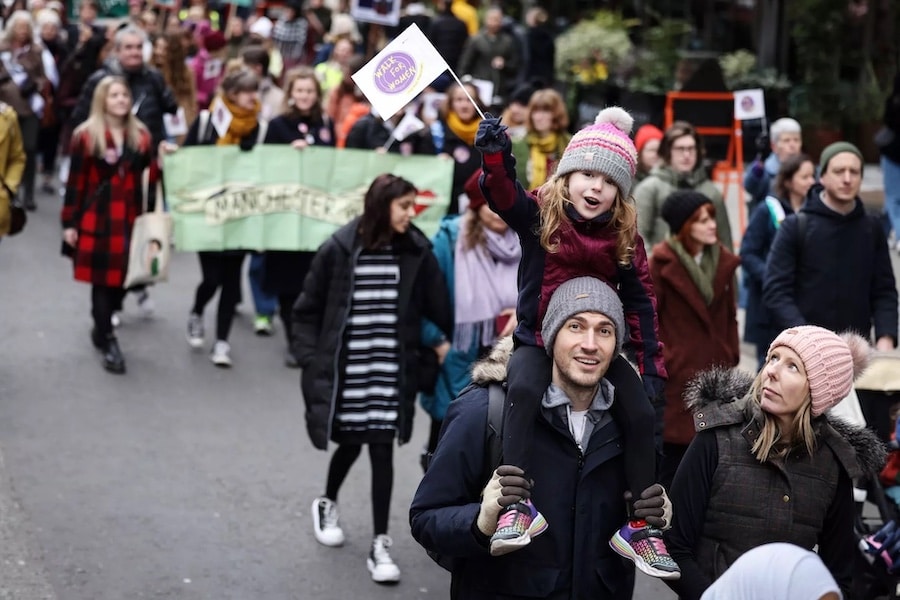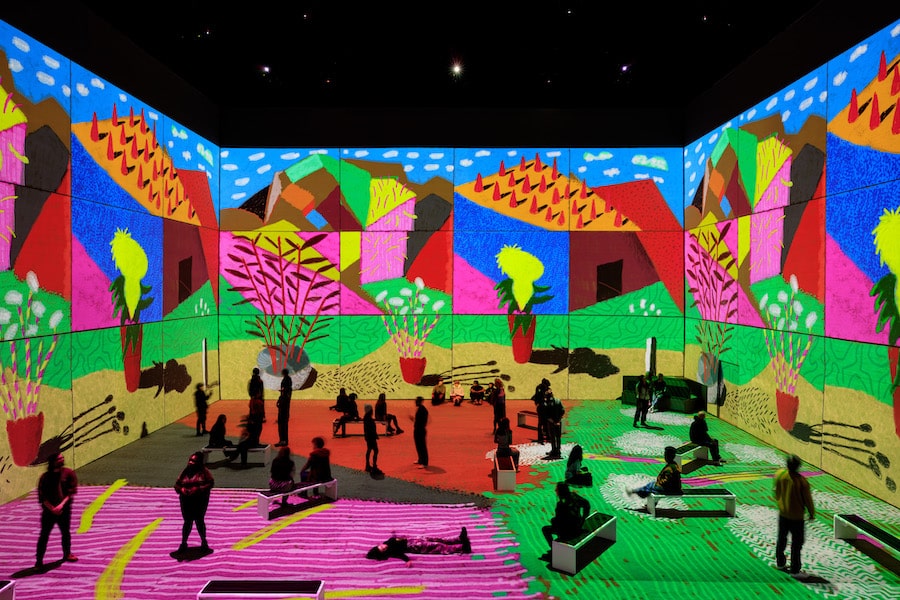MCR: Classical delivers a stunning Sunday filled with musical splendour
- Written by Thom Bamford
- Last updated 2 years ago
- Culture, Music
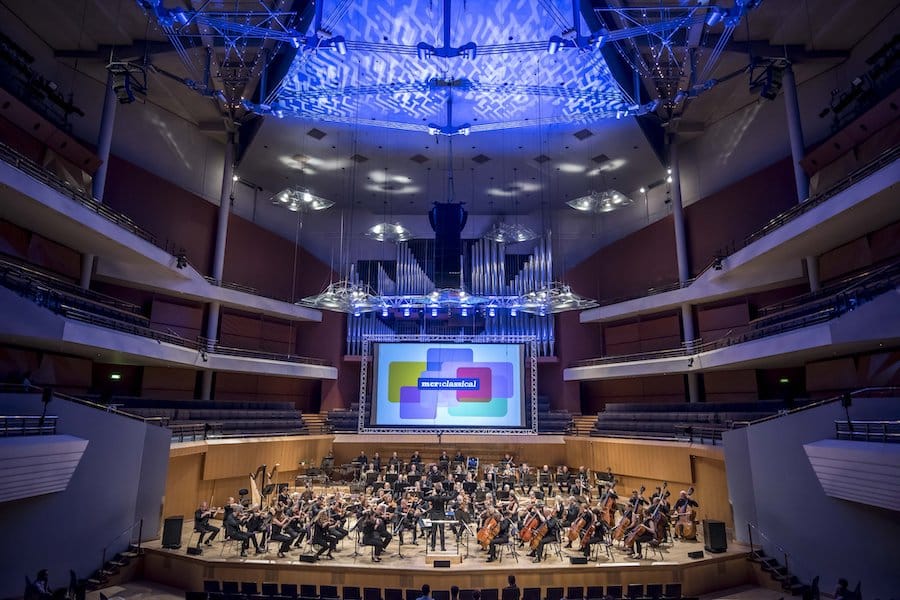
MCR: Classical
Following a triumphant Saturday that featured incredible performances from Manchester Camerata, The Hallé, RNCM Olias Saxophone Quartet, BBC Philharmonic, BVG: the Indian Adult Choir of England and Manchester Collective, Sunday once again showcased a beautiful and eclectic day of music from around the world.
So we were thrilled to be invited down on Sunday, to soak up the eclectic atmosphere and a fantastic day of unique performances.
M15 Brass Quintet
The day began with the vibrant sounds of the M15 Brass Quintet, a young ensemble formed in 2020.
Their exceptional talent and dedication were acknowledged when they were selected to compete in the finals of the prestigious International Phillip Jones Brass Quintet Competition.
The pieces they performed, including Franz Liszt’s Hungarian Rhapsody No. 2 and Mark Nightingale’s Song for Rosie, were part of their competition repertoire.
With their skilful execution and infectious enthusiasm, the M15 Brass Quintet set a high standard for the day’s performances.
The BBC Philharmonic
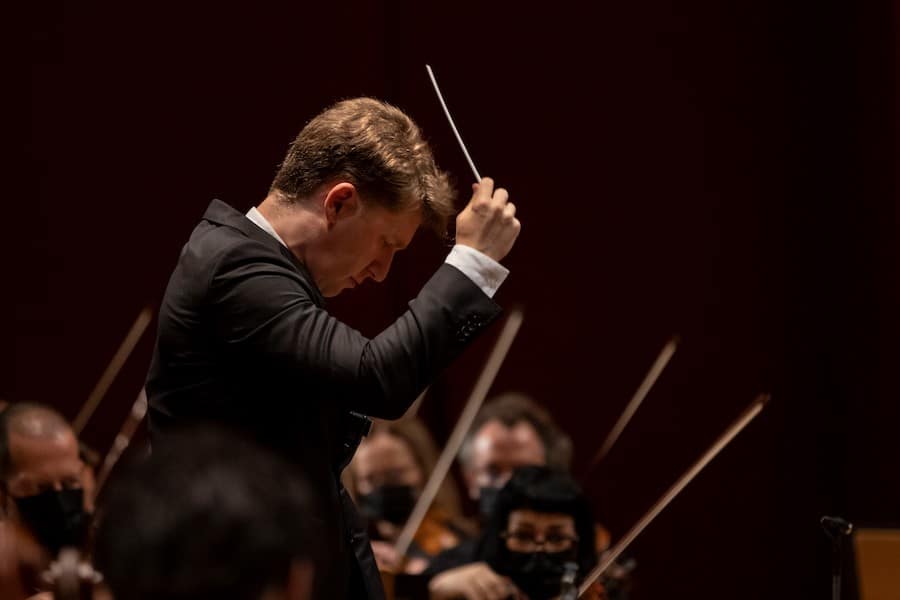
The BBC Philharmonic, under the masterful guidance of conductor Josh Weilerstein graced the stage next, setting the tone with Ludwig van Beethoven’s Overture for Egmont.
Composed between 1809 and 1810, Beethoven’s Overture beautifully captures the essence of the play and stands as a significant work in the realm of orchestral music.
“Egmont” is a tragic play written by Goethe, inspired by the life and heroic struggle of Lamoral, Count of Egmont, a nobleman and military leader in the 16th-century Netherlands.
The play explores themes of resistance, political oppression, and the pursuit of freedom in the face of tyranny. Beethoven’s Overture was intended to set the mood and provide a musical introduction to the dramatic events that unfold in the play.
The orchestra skillfully portrayed the dramatic story of the Dutch Count’s defiance against a Spanish attack, intertwining moments of triumph and contemplation.
Next up, was Maurice Ravel’s Alborada del Gracioso.
This took the audience on a vivacious journey to Spain, where the frenzy of dance rhythms and vibrant orchestrations painted a vivid musical landscape.
The Japanese influence was felt in Toru Takemitsu’s Towards the Sea II, an ethereal and introspective composition that evoked images of the ocean and the serenity of nature.
Béla Bartók’s Romanian Folk Dances immersed the audience in the vibrant and infectious melodies of Romanian culture, while William Dawson’s opening movement from the Negro Folk Symphony delved into themes of freedom and salvation, offering a poignant and powerful conclusion to the BBC Philharmonic’s performance.
The concert, broadcast live on BBC Radio 3, allowed listeners to experience the full breadth of the orchestra’s brilliance and musicality.
If you missed it, you can catch up here.
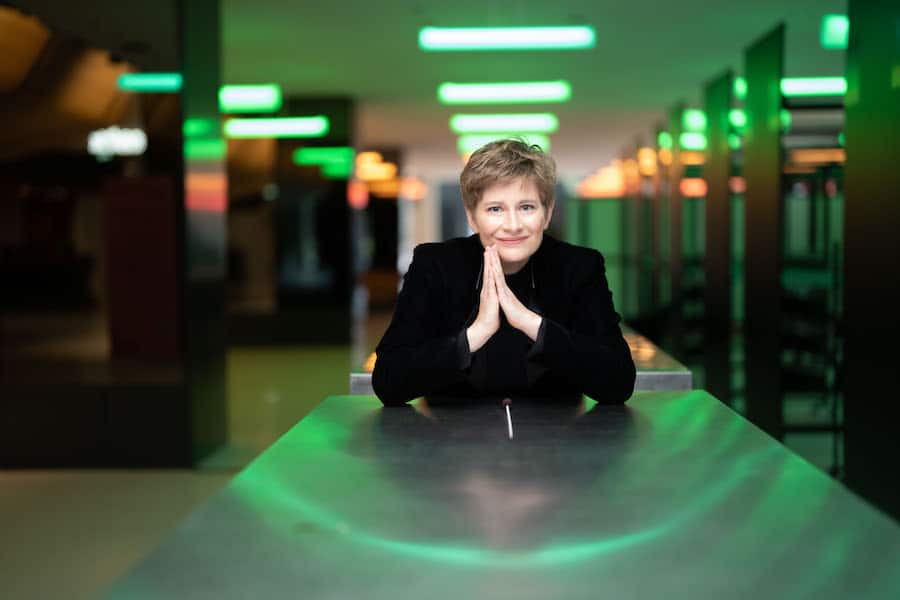
In the afternoon, the main stage performance, conducted by Anja Bihlmaier, revolved around the theme of dance.
Lili Boulanger’s D’un matin de printemps sparkled with joy and exuberance, as the orchestra embraced the playful melodies and vibrant orchestrations that celebrated the pleasures of a spring morning.
Leonard Bernstein’s Three Dance Episodes from “On the Town” transported the audience to the bustling streets of 1940s New York.
The lively and jazzy rhythms, combined with infectious melodies, evoked a sense of energy and excitement, as sailors on leave revelled in the vibrant atmosphere of the city. The orchestra skillfully captured the spirit of the era, transporting the audience to a bygone time.
Samuel Coleridge-Taylor’s Ballade mesmerised with its sweeping romanticism, enveloping the listeners in lush harmonies and captivating orchestral colours.
Closing the concert was Zoltán Kodály’s Dances of Galánta, a fiery and passionate display of Hungarian folk-inspired music.
The orchestra’s technical brilliance and precision shone through as they navigated the complex rhythms, dynamic contrasts, and virtuosic passages of the composition.
The audience was captivated by the energy and intensity of the performance, as the orchestra showcased their command of the repertoire.
Ancoats Community Choir
The Barbirolli Room offered an intimate and communal experience in the late afternoon, featuring the Ancoats Community Choir.
Directed by Stuart Overington and Matthew Roughley, the choir radiated joy and camaraderie as they sang a collection of folk tunes, traditional songs, gospel pieces, and original compositions.
Their harmonies resonated through the room, creating a warm and inclusive atmosphere that invited the audience to join in the celebration of music and community.
Bassically Quartet
In the stalls foyer, the Bassically Quartet, comprised of four talented double bass players from Brazil, mesmerized the audience with their virtuosity and mastery of the instrument.
Exploring the extremes of the double bass, they seamlessly transitioned from deep, resonant bass lines to dazzling and virtuosic passages in the higher registers.
Their performance of Gustav Mahler’s Symphony No. 2, rearranged for the quartet, evoked profound emotions, while Heitor Villa-Lobos’ O Trenzinho do Caipira and Pixinguinha’s Carinhoso highlighted the quartet’s versatility and ability to bring Brazilian rhythms to life.
The quartet’s skilful interpretation of Ernst Mahle’s Quarteto para Contrabaixos and Adam Gorb’s Do you Remember? showcased their artistry and command of a wide range of musical styles.
The day culminated in a powerful performance on the main stage by the Hallé, led by conductor Delyana Lazarova.
The Hallé Orchestra
Thomas Adès’ Dawn awakened the senses with its shimmering orchestral colours, capturing the essence of a new day dawning. The highlight of the evening came with Igor Stravinsky’s revolutionary ballet, The Rite of Spring.
From the captivating opening notes to the relentless and powerful rhythms that permeated the piece, the Hallé’s rendition was a masterclass in precision and intensity.
The orchestra captured the essence of Stravinsky’s groundbreaking composition, which once incited controversy (and nearly a riot on its debut) but now stands as a timeless masterpiece.
“The Rite of Spring” challenged the traditional musical conventions and aesthetics of its time. Its dissonance, rhythmic complexity, and rejection of traditional tonality caused a sensation and provoked a strong reaction from the audience at its premiere.
However, “The Rite of Spring” soon gained recognition for its groundbreaking innovations and its profound influence on 20th-century music. Stravinsky’s bold experimentation with rhythm, harmony, and orchestration paved the way for new directions in composition and greatly influenced subsequent generations of composers.
The Halle absolutely knocked it out of the park, and the fitting tumultuous ending to a powerful piece of music capped off what has been a glorious weekend for music in Manchester.
Sunday at MCR: Classical delivered a weekend filled with musical wonders, where each performance transported the audience on a unique journey.
The exceptional talents of the musicians, the thoughtfully curated repertoire, and the dedication to artistic expression culminated in an unforgettable experience.
The event was a joyous celebration of the beauty, diversity, and power of classical music.
- This article was last updated 2 years ago.
- It was first published on 28 June 2023 and is subject to be updated from time to time. Please refresh or return to see the latest version.
Did we miss something? Let us know: [email protected]
Want to be the first to receive all the latest news stories, what’s on and events from the heart of Manchester? Sign up here.
Manchester is a successful city, but many people suffer. I Love Manchester helps raise awareness and funds to help improve the lives and prospects of people across Greater Manchester – and we can’t do it without your help. So please support us with what you can so we can continue to spread the love. Thank you in advance!
An email you’ll love. Subscribe to our newsletter to get the latest news stories delivered direct to your inbox.
Got a story worth sharing?
What’s the story? We are all ears when it comes to positive news and inspiring stories. You can send story ideas to [email protected]
While we can’t guarantee to publish everything, we will always consider any enquiry or idea that promotes:
- Independent new openings
- Human interest
- Not-for-profit organisations
- Community Interest Companies (CiCs) and projects
- Charities and charitable initiatives
- Affordability and offers saving people over 20%
For anything else, don’t hesitate to get in touch with us about advertorials (from £350+VAT) and advertising opportunities: [email protected]

Mayors and veterans unite to drive ambulances of hope to Ukraine

The bookshop where everything is free and everyone gets a warm welcome

How I AM has been changing lives for neurodivergent people for over 50 years
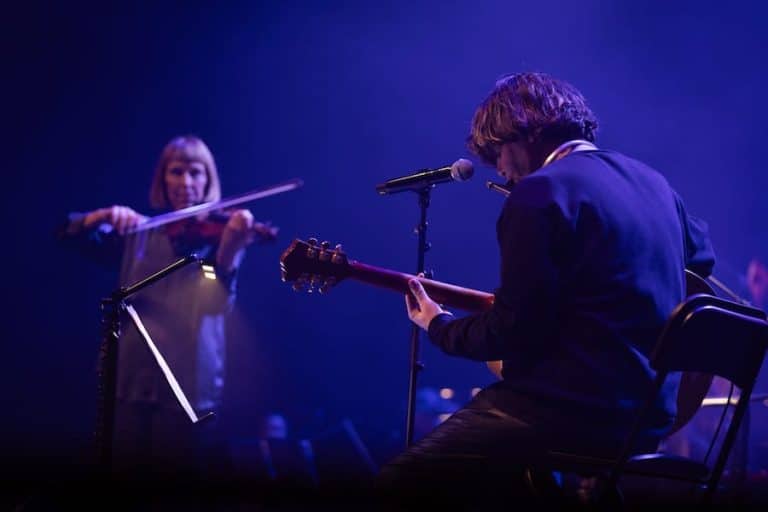
Review: RNCM Session Orchestra with Tim Burgess and Helen O’Hara is ‘a joyful evening of classics’













